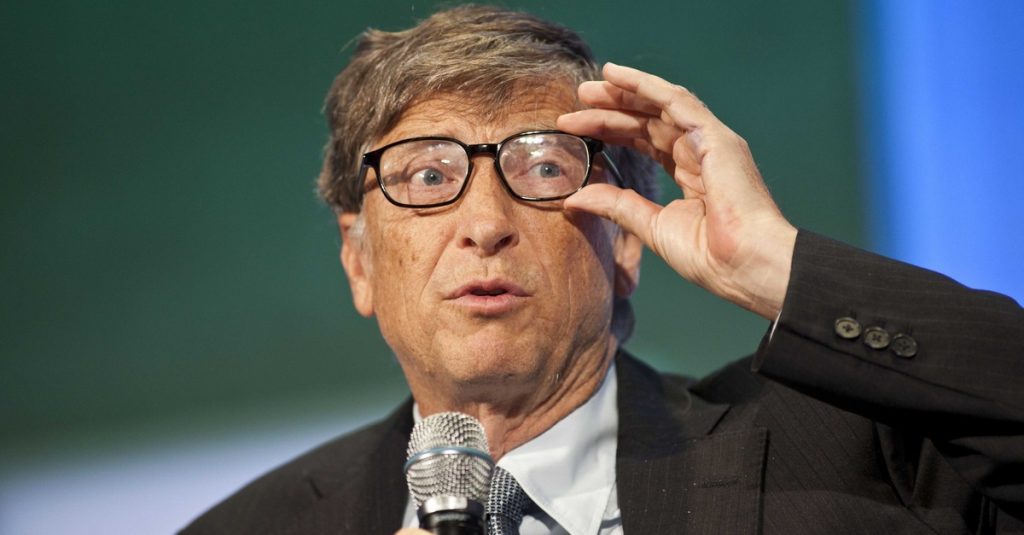Bill Gates has cranked out the annual letter of the Bill and Melinda Gates Foundation, and I agree with a lot of what he says. I agree with him that the world is largely better than ever (anyone die of small pox lately?). I accept the evidence that foreign aid actually works. The future for a lot of people in the developing world is that of citizens of developed economies. But he is wrong when he says “By 2035, there will be almost no poor countries left in the world.”
Gates goes on to explain: “Specifically, I mean that by 2035, almost no country will be as poor as any of the 35 countries that the World Bank classifies as low-income today, even after adjusting for inflation.” He adds, “More than 70 percent of countries will have a higher per-person income than China does today. Nearly 90 percent will have a higher income than India does today.”
And to be fair, he also says, “A few countries will be held back by war, politics (North Korea, barring a big change there), or geography (landlocked nations in central Africa). And inequality will still be a problem: There will be poor people in every region.”
Read more: THE PANAMA PAPERS SENSATION, AN IDIOTIC INSULT TO EIGHT MILLION AMERICAN EXPATRIATES
That’s why Gates is wrong. He uses the wrong measure of poverty, and he is dismissive of political considerations.
He measures whether a country is rich by the per capita income, but a small thought experiment proves that is a ridiculous measure. Suppose a tiny nation of 100 people. Suppose the Gross Domestic Product is $100 million. On a per capita basis, everyone’s a millionaire. However, if one person gets $99,999,901 of that income, everyone else gets $1 each. Is that a rich nation or a poor one? With 99% of the population in that kind of condition, I submit that you have a poor country on your hands.
Alternatively, another nation with only 100 people has a GDP of just $100,000. This country is poorer per capita than the other example. But if the income is equally distributed, everyone has $1,000. That might not count as rich, but it’s a richer nation than the first example because no one is living in abject poverty.
How would I measure poverty? I’d look at the median income, not the per capita. The median income is that level that dissects the nation — half the people make more and half make less. And I would consider standard deviation from the average. If you do that, you get a much better picture of the situation.
The distribution of income leads us to the real issue. Poverty is not a matter of economics so much as it is a political affair. Any economic system rests on property law as politically determined — slave states, feudal societies, free market or state capitalism, socialist or communist societies all are defined first by politics which dictates economics. Who can own what, rates of taxation, transfers of wealth — all of that is politically determined.
Read more: CFTC NOMINEE CHRIS BRUMMER, TASTY GERMAN BRATWURST SAUSAGES, BUT NO AG
And so when Gates says some nations will be held back by politics, he has allowed a huge exception to his prediction. Places like Somalia and South Sudan have dreadful problems with government issues and property law. Countries like Yugoslavia in the 1980s were looking like winners, but then, its political system collapsed and you had the worst violence Europe had seen since 1945. Or a nation can simply be misgoverned into poverty. Argentina under Juan and Eva Peron (Andrew Lloyd Webber’s “Evita” covered this) went from a developed nation that exported beef to a third world basket case. Zimbabwe under Robert Mugabe is probably now worse than it was when black majority rule began.
I wish Gates were right. I’d love for poor countries to all grow rich, but he’s using the wrong measure for deciding the question of rich and poor. And above all, he fails (like most businesspeople and economists) to appreciate the primacy of politics.
And if you don’t think politics trumps economics, I have some Confederate war bonds I can sell you — cheap.






